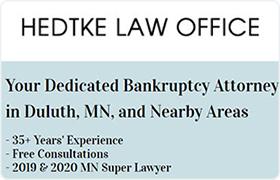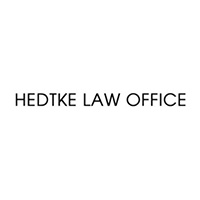Aurora Bankruptcy & Debt Lawyer, Minnesota
Sponsored Law Firm
-
 x
x

Click For More Info:
-
Hedtke Law Office
1217 E. 1St Street Duluth, MN 55805» view mapBankruptcy & Debt Sensible Debt Solutions
Hedtke Law Office is here to answer your questions and guide you through the bankruptcy process. We work to help you reduce your debt while keeping your personal property.
800-887-8940
Not enough matches for Aurora Bankruptcy & Debt lawyer.
Below are all Aurora lawyers.
Laura J. Ackman
Health Care Other, Health Care, Divorce, Elder Law
Status: In Good Standing Licensed: 26 Years
Laura Jane Ackman
Health Care Other, Health Care, Elder Law
Status: In Good Standing Licensed: 26 Years
Tracy Rae Podpeskar
Traffic, Dispute Resolution, Social Security, Estate
Status: In Good Standing Licensed: 17 Years
 John Hedtke Duluth, MN
John Hedtke Duluth, MN Practice AreasExpertise
Practice AreasExpertise
